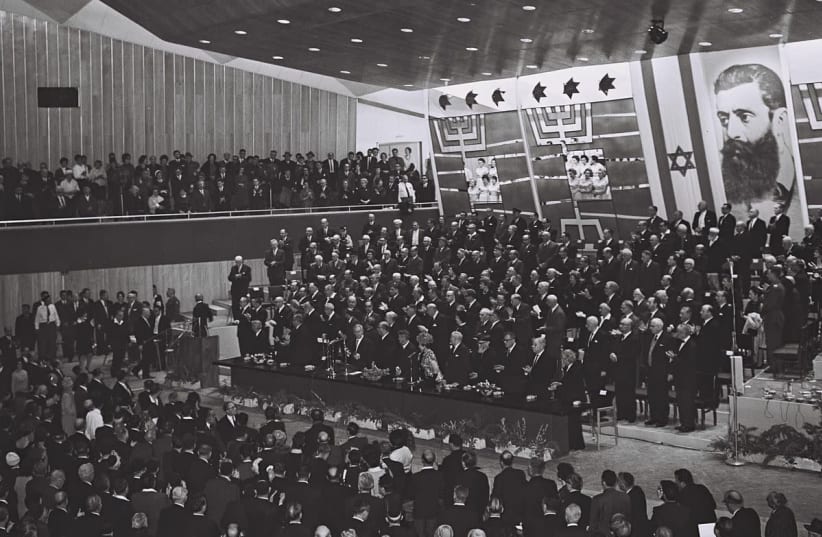The 38th World Zionist Congress got underway on Tuesday in a socially-distanced and awkward digital online format with little fanfare and not much verve but a vitriolic battle over control of national institutions raging in the background.
The COVID-19 pandemic has prevented the traditional powwow in which over 700 Zionist delegates from around the world convene in Jerusalem, and it has changed the usual Zionist festival into a poorly attended, lengthy online video conference full of stilted speeches and dry protocol.
The cumbersome format has perhaps served to underline more than ever the question of how relevant these venerable, perhaps musty, national institutions are?
Does the Jewish state really still need the World Zionist Organization, Keren Kayemeth LeIsrael (KKL) – Jewish National Fund, and Keren HaYesod – United Jewish Appeal?
Couldn’t the KKL be wrapped up fully into the Israel Lands Authority and the Environment Protection Ministry, would philanthropists stop giving to Israel and Zionist causes without Keren HaYesod, is the WZO really the best forum for debate between the Jewish state and the Diaspora?
The nay-sayers have a strong argument.
Shmuel Rosner, an author and commentator on the Jewish world, argues that these institutions serve little purpose, are “outdated relics” which played an important role in the establishment of the state but are no longer needed.
Moreover, the overwhelming majority of the Israeli public, and much of the Diaspora has little awareness or understanding of what these organizations do and what they are for. And to those who are aware, they often appear to be a repository for jobs and budgets to be distributed in return for political favors.
“Most Israelis don’t even know what you’re talking about when you discuss these organizations, and I think most Jews in the Diaspora don’t care much about them either,” said Rosner, quipping that they are “mostly something for professional Jews to kvetch about.”
Even the World Zionist Organization, founded by Theodore Herzl, has questionable utility, with questions raised about its purpose and format, and whether its function could not be carried out in a more efficient, relevant, and cost-effective manner.
But the defenders of these once illustrious institutions argue that their functions would be hard to replicate and that they would need to be created if they did not already exist.
Having the WZO as a forum in which Jews from the Diaspora and from Israel can meet, deliberate, discuss, and act on the challenges facing the Jewish people and the Jewish state is critical to maintaining that sense of mutual responsibility between all parts of the Jewish nation.
The Jewish Agency’s mission of promoting aliyah would be trickier for the State of Israel to perform in foreign countries, and it carries out important work bolstering the connection of Diaspora Jews to Israel, and of strengthening Jewish life in the Diaspora.
And much of KKL’s assets derive from donations made to it in the past by Diaspora Jewry. Dismantling the organization, for all its faults – which are numerous, would deprive Diaspora Jews the right to help determine how that money and those assets be used.
For all their problems and vices, and in spite of the corruption that is apparent in some of them, it is possible that although the national institutions are relics of a different age, they still have a role to play.
The discussion should, perhaps, move away from talk of dismantlement and towards the idea of reform and restructuring.
Could an institution with less political machinations than the WZO be created to serve as the deliberative body of the Jewish people in all its components?
Can the KKL’s lack of transparency, and the apparent ease of moving money and resources towards personal political agendas be changed?
If the functions of these institutions do serve an important role, then it is surely incumbent upon their stakeholders to address these concerns sooner, rather than later.
